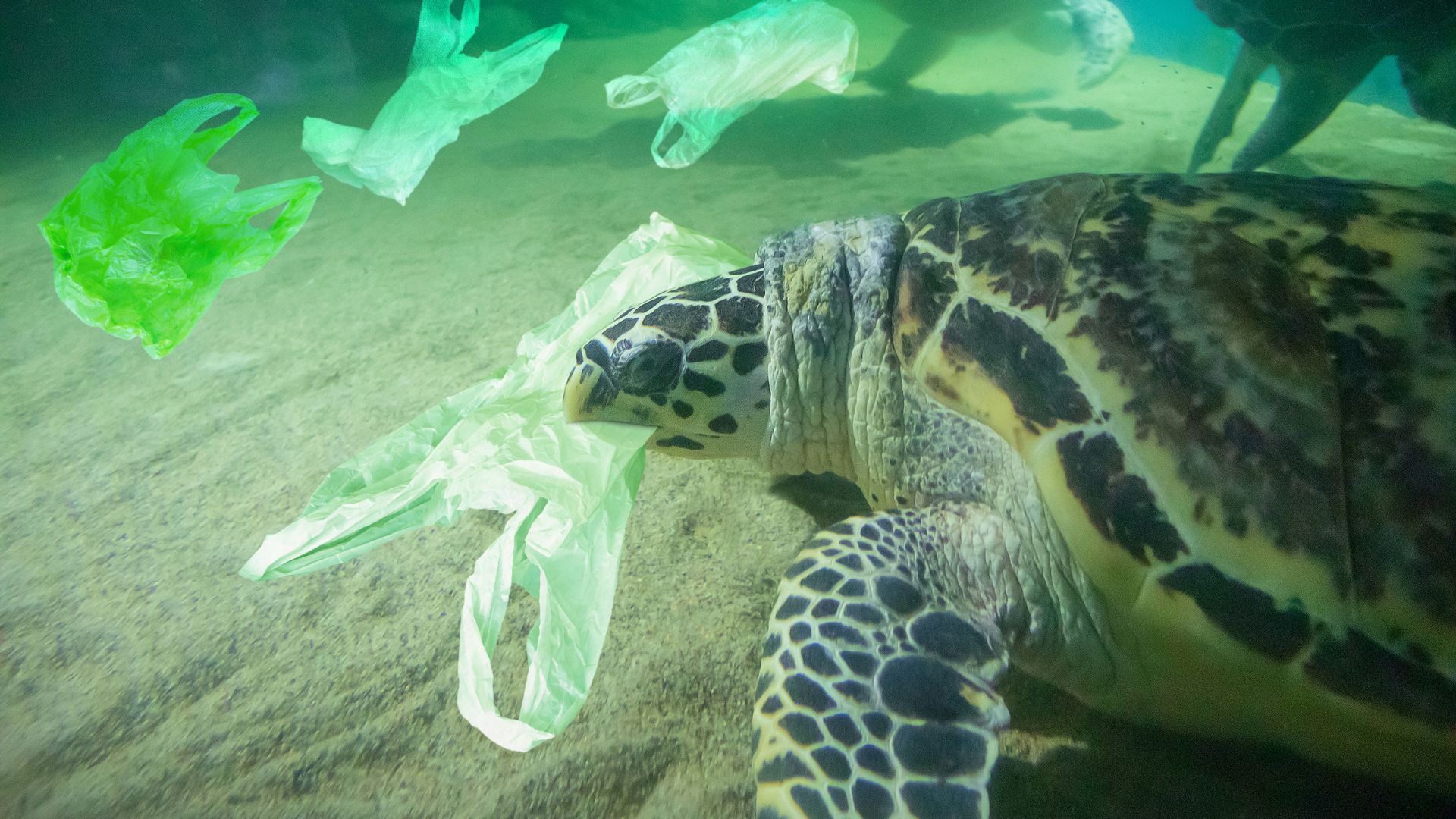This Saturday marks the start of Plastic Free July, a global movement empowering millions to combat plastic pollution and create cleaner streets, oceans, and thriving communities. It’s time to unveil the harsh reality behind the scenes: over 400 million tonnes of plastic are produced annually worldwide, with a staggering 50% designed for single-use. Shockingly, less than 10% of this plastic actually gets recycled.
The shocking reality of plastic pollution: trash trivia facts
As we researched various modules for our e-learning programme, 100 Ways in 100 Days, dedicated to helping individuals work, live, and think sustainably, we uncovered some intriguing revelations. So trivia enthusiasts and pub quiz aficionados, pay attention and help spread the #plastic-free word!
Did you know that even the most remote locations on Earth, like the Mariana Trench (the deepest point in the ocean) and Mount Everest (the highest mountain peak), are not immune to the impact of human activity? Microplastics, and even plastic bags in the case of the Mariana Trench, have contaminated these inaccessible wonders.
Now, let’s shift our focus closer to home. During a beach clean in Cornwall, an astonishing discovery was made: a plastic lollipop stick modelled to be the legendary football player and former England coach, Kevin Keegan. This relic from a 1970s promotional campaign allowed children to create a football team with it. It’s hard to believe that more than 40 years have passed since its creation.
The durability of plastic is both its benefit and its curse. Plastic sticks, often from earbuds or lollipops, pose a direct threat to marine life due to their poor biodegradability.
Prepare for another eye-opening fact: most chewing gum contains plastic. Yes, you read that correctly! Not only is it unpleasant to think about, but it also costs a staggering £7 million annually to remove chewing gum from UK streets alone. And chewing gum is generally not biodegradable, meaning it could well outlive our children’s children’s children.
Thankfully, a new generation of 100% natural, plant-based gums has emerged as a solution. These delightful gums are not only delicious but also completely free from plastic and biodegradable. They are crafted from sustainably harvested tree sap called chicle, benefiting local communities with a sustainable income while safeguarding the trees. Look for them in major supermarkets, chemists, and online platforms.
But let’s not overlook seemingly innocuous teabags. Sadly, many teabags are still made with plastic and are not suitable for composting. The safest way to enjoy a cuppa is by brewing loose tea using new-style teapots with built-in filters. Alternatively, tea addicts can prepare a flask of tea in the morning to conserve energy and avoid multiple kettle boilings.
Marginal gains for a sustainable future: taking individual actions
Here at @ 100 Ways in 100 Days Plastic Free July chimes perfectly with the theory that underpins our e-learning programme, that of marginal gains, whereby numerous individuals making small changes can create significant positive impacts. We’re in good company too because the United Nations emphasises that while governments and corporations must take urgent action, every individual has a vital role to play too. By making conscious choices and adopting planet-friendly practices, we can spark meaningful change. So take note, and let’s take action together.
Join our e-learning program, 100 Ways in 100 Days, designed to facilitate sustainability behavior change. Explore a multitude of everyday environmental challenges and discover quick and easy hints, tips, and hacks for a more sustainable life—at home, work, and play. Together, we can make a tangible difference!




